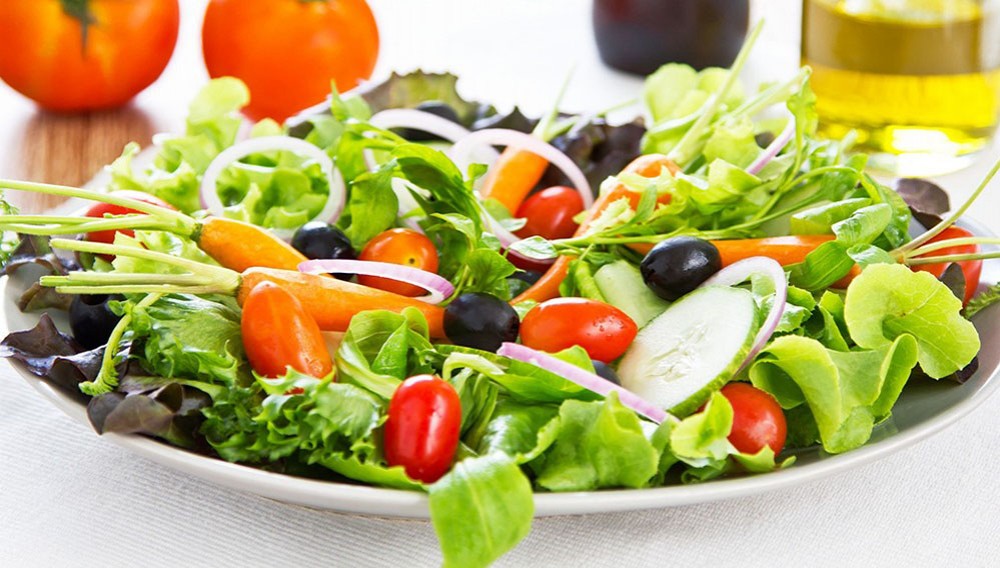
What are the Benefits of Eating Salads?
Many people know that having a salad can be a healthy choice, especially if you are focused on clean eating. But what makes having a salad so beneficial to your health? Here, we explore that exact question, helping you see what healthy salads can do for you.
1. Healthy Salads Help You Get Enough Fruits and Vegetables
Some people struggle when it comes to eating enough fruits and vegetables to maintain a healthy diet. Having a fresh salad every day can make it easy to get all of the servings you need, plus it supports a clean eating lifestyle.
Dark leafy greens and brightly coloured vegetables ensure you get a range of vitamins and minerals, helping you to maintain a healthy body and mind. They are also overflowing with antioxidants, important chemicals in the fight against cancer-causing free radicals. To get the most benefit, try to keep the majority of the ingredients in their raw form. These pack the biggest punch when it comes to creating a truly healthy salad, plus they’re full of flavour and satisfying crunch.
2. Vegetable and Fruit Salads are Full of Fibre
Fibre is a wonderful thing; it helps you feel full longer and can provide a range of health benefits. For example, a fibre-rich diet can help alleviate and prevent constipation and lower cholesterol. It can also make it easier to maintain a healthy body weight which reduces your risk of developing heart disease and diabetes. Your blood sugar levels may also stay more even, helping to prevent cravings for sugary foods.
3. Healthy Salads Cut Calorie Consumption
Dark, leafy greens are very nutrient dense, meaning they provide a lot of nutrition with a limited number of calories. That means a salad with a large serving of spinach, kale, or Romaine creates a strong foundation for weight loss. Just make sure to use higher calorie options sparingly. Cheese, nuts, and dressings can add a lot of calories quickly, so use enough to get a sense of the flavour and texture and stop there. However, many other fruits and vegetables can make a salad exciting and satiating without allowing you to pack on the pounds, so explore your clean eating options and choose items that leave you feeling satisfied.
4. You’ll Get Access to Good Fats
While salad ingredients can contain fats, most of them are of the healthier varieties than you find in items like meat. For example, olive oil, nuts, and avocados all have fat, but of the monounsaturated variety. These not only help you feel more satisfied, but they also ensure your body can absorb other key nutrients found in fruits and vegetables more effectively.
Certain vitamins are fat-soluble, meaning they need fat to be present to aid absorption. Vitamins A, D, E, and K all fall into this category, so you need to consume an appropriate amount of healthy fat, like omega-3, to make sure these vitamins are making it to critical body systems.
5. A Salad Provides Water
6. Salads Can Cool You Down
Whether it is a traditional lettuce-based version or a fruit salad, the cool ingredients can help you feel refreshed during the summer heat. Often, as temperatures rise, hot meals become less appealing. But consuming healthy ingredients is critical all year round if you want to maintain optimal health.



